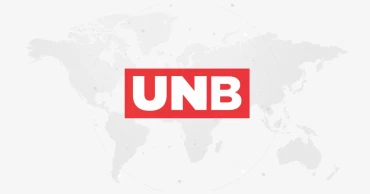medicine
Chemists, druggists demand 25% commission hike from pharmaceutical companies
Bangladesh Chemists and Druggists Association (BCDA) has demanded that pharmaceutical companies increase the sales commission for drug retailers by 25 percent and warned of tougher programmes if their demand is not met within 15 days.
The association’s central executive committee came up with the demand at a press conference at the Jatiya Press Club in Dhaka on Thursday.
Reading out a written statement, BCDA President Moinul Haque Chowdhury said they have already held several meetings with the Bangladesh Association of Pharmaceutical Industries and the Directorate General of Drug Administration (DGDA) regarding the demand.
“We also staged human chains across the country on May 22, 2025 to press home our logical demand, but no effective measures have been taken yet,” he said.
Discounts on medicine, tests, checkup on bKash payment
Moinul said there are around five lakh drug traders in Bangladesh and they do not produce medicines themselves.
He further alleged that despite 85 years passing, the sales commission has not increased but rather decreased while neighboring countries like India and Pakistan offer commissions above 30% to their medicine retailers.
The BCDA president said, “During the Covid-19 crisis, medicine retailers risked their lives to serve patients when the entire nation was struggling. Yet, their contributions remain undervalued.”
He added that government fees and business expenses—including trade license renewal, drug license fees, pharmacy course costs, VAT, shop rent, pharmacist salary, and electricity bills—have all risen sharply.
“Given the soaring costs of living and doing business, continuing pharmacy operations under the current commission rate has become extremely difficult,” he said.
4 months ago
98 percent of the country's demand for medicine is produced locally: Health Minister
Health Minister Dr. Samanta Lal Sen on Tuesday said that Bangladesh has made continuous progress in the pharmaceutical industry as 98 percent of the country's total demand for medicine is now produced locally.
“Almost all medicines produced in Bangladesh are being exported to 157 countries of the world,” he said.
With Pahela Falgun-Valentine’s Day, the nation eyes a festive February 14
In response to the question of independent MP elected from Dhaka-19 Muhammad Saiful Islam, the minister said that incentives are being given by the government to encourage the export of medicines produced in the country.
“As a part of this, incentives are being given at the rate of 10 percent this year,” he said.
Govt okays project to provide freelancing training to youths in 48 districts
Responding to Awami League MP elected from Laxmipur-1 Anwar Khan, the minister said that medicines worth Tk 59 billion have been exported in the first six months till December of the current financial year.
In response to independent MP elected from Laxmipur-4 Md Abdullah, the health minister said that about 32 types of medicines are being provided to community clinics and 105 types of medicines to government hospitals free of cost.
Commerce Ministry names 77 industries winners of export trophy for FY21-22
2 years ago
Ramadan spirit: 2 Chandpur traders selling iftar essentials at Tk 1 profit, medicine at purchase price
This Ramadan, two traders in Chandpur’s Faridganj upazila are going above and beyond to uphold the spirit of the holy month.
Shah Alam, owner of a grocery shop adjacent to Central Charkumira Mohila Madrasa in Faridganj, is selling iftar essentials including pulses, puffed rice, flattened rice, dates etc. at a profit of only Tk 1.
Mostafa Kamal, owner of a medicine store at Sanki Sair Bazar in East Balithuba of the same upazila, is selling medicines at purchase price during Ramadan.
Read More: With no easing of price hike, tough times for people in Khulna as Ramadan begins Friday
Both traders distributed leaflets among people and informed through social media in this regard.These noble initiatives have created quite a buzz in the locality.
According to Shah Alam and Mostafa, sales are seeing a boost, and locals are praising their initiative.
Alhaj Jahangir Akhand Selim, president of Chandpur District Industry and Merchants Association, has issued a statement urging all traders in the district to sell iftar essentials and other commodities at low profit in public interest during Ramadan.
Read More: Muslims in 40 Chandpur villages set to commence Ramadan with Saudi Arabia.
2 years ago
Beximco to produce medicines in Saudi Arabia from next year
With joint investment from Bangladesh and Saudi Arabia, Beximco Pharmaceuticals is set to start producing medicines in the kingdom from next year, Prime Minister's Private Industries and Investment Adviser Salman F Rahman said on Saturday (March 11, 2023).
Bangladesh will provide Saudi Arabia with manpower and technical support for the plant, he said while speaking to reporters after a visit to Beximco Pharmaceuticals with a delegation led by Saudi Commerce Minister Majid bin Abdullah Al Qasabi.
Rahman said, "We are committed to producing medicines, maintaining top quality. In terms of pharmaceutical exports, we must adhere to a variety of international procedures. This is why people around the world have trust in medicines produced in Bangladesh."
“According to reports, the medicine produced in Bangladesh are of high quality. Besides, prices are also quite reasonable compared to other countries,” he added.
Read more: Find ways to bring commodity prices to a normal level: PM tells business leaders
Referring to the growth of the pharmaceutical industry in Bangladesh, he said the industry in the country has made good progress and made a mark in the global market.
“The government is setting up a pharmaceutical park. The raw materials for medicines will be produced there very soon, which will further accelerate the growth of this industry.”
Saudi Commerce Minister Majid bin Abdullah Al Qasabi arrived in Dhaka on Friday afternoon to attend the Bangladesh Business Summit-2023, organized by the FBCCI in the capital.
Earlier on Saturday, Bangladesh and Saudi Arabia had signed three MoUs in order to strengthen economic and trade relations between the two countries.
Read more: Business Summit: Deals signed with Saudi Arabia, China on first day
One of the agreements would allow a Saudi company to set up gas pipelines through India and Bangladesh under a public-private partnership (PPP) basis. Two MoUs were signed with Saudi Arabia for developing Rangpur Sugar Mills and Patenga Container Terminal.
Later, a group led by the Saudi commerce minister visited Beximco Pharmaceuticals and met with a delegation from Beximco Pharmaceuticals.
While speaking to reporters, the Saudi minister said: “Trade and investment between Bangladesh and Saudi Arabia have not yet reached the desired level. We will explore the trade relations between the two countries through the visit.”
“We also want to harness our potential in information technology, communication, and manpower exports,” Qasabi said.
Read More: Policies must to stop misuse, overuse of antibiotics: Health Minister
Citing Beximco Pharmaceutical as a "world-class pharmaceutical manufacturing factory", the Saudi commerce minister said Beximco Pharmaceutical is producing medicines using all advanced technologies.
Meanwhile, Nazmul Hasan Papon, managing director of Beximco Pharmaceuticals, said at least 30 types of medicines will be produced at the plant in Saudi Arabia.
“Even though the plant is being constructed with joint investment from both Saudi Arabia and Bangladesh, we are providing the majority of the funds,” he said.
Bangladesh is currently exporting medicines to 160 countries around the world after meeting its own demand.
Read More: Fake drug manufacturing unit busted in Dhaka, 7 held
According to the Directorate General of Drug Administration, the export of medicines in the 2021–22 fiscal year was US$ 188.78 million.
2 years ago
Policies must to stop misuse, overuse of antibiotics: Health Minister
Health Minister Zahid Maleque has said that the United Nations (UN) has urged its member states to formulate policies and laws so that excessive use of antibiotics can be prevented.
The minister revealed the information during an exclusive interview with UNB, held at the Lotte New York Palace Hotel, on Sunday.
During the interview, the health minister informed that the issue of antibiotics use received special focus during the 77th session of United Nations General Assembly (UNGA).
Read: Bangladesh makes progress in efforts to locally produce Covid-19 vaccines: Health Minister
“This year, UNGA held three sessions on health, in which I had participated. The antibiotics issue, particularly resistance to antibiotics, was widely discussed during these sessions. Countries present during the sessions expressed great concern over the fact that people all over the world were often using antibiotics without prescriptions, and it was discovered that people from low and middle income countries were using antibiotics more than people from rich countries,” Zahid Maleque said.
The minister added that one of the reasons why antibiotics use is so widespread is because a lot of medicines are sold over-the-counter.
“Anyone can buy antibiotic medicine from the medicine stores directly, without showing any prescription. People are developing antibiotic resistance due to such overuse, which means antibiotics can’t cure the illness for which it is consumed. As a result, many people are dying around the world not from sickness, but from overusing drugs,” the minister commented.
Read: First dose of Covid-19 vaccine won’t be administered after Oct 3: Health Minister
Replying to a question, the minister said that Bangladesh’s healthcare system was praised during the UN session.
“Our success in Covid-19 management has been lauded by all. Besides, the medicines we produce and export were also acclaimed. We screened a documentary in which we have highlighted our achievements in the health sector, which was well received. All in all, the response has been mostly positive,” Zahid Maleque said.
Terming antibiotic resistance as a terrifying phenomenon, he added that the UN has emphasized the need for inventing new antibiotics that are more effective than the existing ones.
Read “Won’t allow anyone to do business in the name of healthcare”
“At the UN session, member states have been urged to provide healthcare services in proper ways. They have also been asked to ensure that no one can avail medicine like antibiotics without prescriptions. Most importantly, the countries present at the session have pledged to make sure that everyone gets treated by an expert doctor, and doesn’t consume drugs without sufficient reason,” the minister concluded.
3 years ago
2 win medicine Nobel for showing how we react to heat, touch
Two scientists won the Nobel Prize in medicine on Monday for their discoveries into how the human body perceives temperature and touch, revelations that could lead to new ways of treating pain or even heart disease.
Americans David Julius and Ardem Patapoutian separately identified receptors in the skin that respond to heat and pressure, and researchers are working on drugs to target them. Some hope the discoveries could eventually lead to pain treatments that reduce dependence on highly addictive opioids. But the breakthroughs, which happened decades ago, have not yet yielded many effective new therapies.
Julius, of the University of California at San Francisco, used capsaicin, the active component in chili peppers, to help pinpoint the nerve sensors that respond to heat, the Nobel Committee said. Patapoutian, of Scripps Research Institute at La Jolla, California, found pressure-sensitive sensors in cells that respond to mechanical stimulation.
“This really unlocks one of the secrets of nature,” said Thomas Perlmann, secretary-general of the committee, in announcing the winners. “It’s actually something that is crucial for our survival, so it’s a very important and profound discovery.”
Read: Nobel Prize honors discovery of temperature, touch receptors
The committee said their discoveries get at “one of the great mysteries facing humanity”: how we sense our environment.
The choice of winners underscored how little scientists knew about that question before the discoveries — and how much there still is to learn, said Oscar Marin, director of the MRC Centre for Neurodevelopmental Disorders at King’s College London.
“While we understood the physiology of the senses, what we didn’t understand was how we sensed differences in temperature or pressure,” Marin said. “Knowing how our body senses these changes is fundamental because once we know those molecules, they can be targeted. It’s like finding a lock, and now we know the precise keys that will be necessary to unlock it.”
Marin predicted that new treatments for pain would likely come first, but that understanding how the body detects changes in pressure could eventually lead to drugs for heart disease, if scientists can figure out how to alleviate pressure on blood vessels and other organs.
Richard Harris, of the Chronic Pain and Fatigue Research Center at the University of Michigan, also said the new laureates’ work might help design new pain medications, but noted the field has long been stalled.
He said that because pain also includes a psychological component, simply identifying how it is triggered in the body isn’t necessarily enough to address it. Still, he said Julius’ and Patapoutian’s work would likely help doctors better treat pain that is caused by things like extreme temperatures and chemical burns.
“Their discoveries are giving us the first inkling of how this type of pain starts, but whether it’s involved in many chronic pain patients remains to be seen,” he said.
Still, Fiona Boissonade, a pain specialist at the University of Sheffield, said the Nobel laureates' work was especially relevant for the one in five people globally that suffer from chronic pain.
Read:Medicine award kicks off week of Nobel Prize announcements
Such pain — including from arthritis, migraines and chronic back problems — "is a huge medical problem, and it’s quite poorly treated across the board,” she said. “Their research may lead us to identify new compounds that are effective in treating pain that don't come with the devastating impact of opioids,” which have spawned a crisis of addiction in the U.S.
In keeping with a long tradition of difficulties in alerting Nobel winners, Julius said he was awakened by what he thought was a prank phone call shortly before the prize was announced.
“My phone sort of bleeped, and it was from a relative who had been contacted by somebody on the Nobel Committee trying to find my phone number,” he said from his home in San Francisco, where it was the middle of the night.
It was only when his wife heard Perlmann’s voice and confirmed it was indeed the secretary-general of the committee who was calling, that he realized it wasn’t a joke. Julius said his wife had worked with Perlmann years ago.
Julius, 65, later said he hoped his work would lead to the development of new pain drugs, explaining that the biology behind even everyday activities can have enormous significance.
“We eat chili peppers and menthol, but oftentimes, you don’t think about how that works,” he said.
The Nobel Committee tweeted a photo of Patapoutian in bed with his son while he watched the announcement on his computer.
Read: 2 Americans win Nobel prize in economics for auction theory
“A day to be thankful: this country gave me a chance with a great education and support for basic research. And for my labbies and collaborators for partnering with me,” Patapoutian, who was born in Lebanon, tweeted.
When the team made the discovery in 2009, “we were of course so excited and literally jumping up and down. It was something we were looking for for years," Patapoutian said at a news conference.
Patapoutian is paid by the Howard Hughes Medical Institute, which also supports The Associated Press’ Health and Science Department. Julius is an HHMI trustee.
The prestigious award comes with a gold medal and 10 million Swedish kronor (over $1.14 million). The prize money comes from a bequest left by the prize's creator, Swedish inventor Alfred Nobel, who died in 1895.
The prize is the first to be awarded this year. The other prizes are for outstanding work in the fields of physics, chemistry, literature, peace and economics.
4 years ago
Nobel Prize honors discovery of temperature, touch receptors
The Nobel Prize in the field of physiology or medicine has been awarded to U.S. scientists David Julius and Ardem Patapoutian.
They were cited for their discovery of receptors for temperature and touch.
Read: Medicine award kicks off week of Nobel Prize announcements
The winners were announced Monday by Thomas Perlmann, secretary-general of the Nobel Committee.
The first of the 2021 Nobel Prizes is announced Monday with the naming of the winner, or winners, in the field of physiology or medicine.
A panel at the Karolinska Institute in Stockholm announced the recipient after 11:30 a.m. (0930 GMT).
Last year's prize went to three scientists who discovered the liver-ravaging hepatitis C virus, a breakthrough that led to cures for the deadly disease and tests to keep the scourge from spreading though blood banks.
Read: Nobel Literature prize to be awarded after years of tumult
The Nobel Assembly often commends basic science, but practical applications are also sometimes recognized. This could boost the chances of those involved in developing vaccines against the coronavirus getting the prize.
The prestigious award comes with a gold medal and 10 million Swedish kronor (over $1.14 million). The prize money comes from a bequest left by the prize's creator, Swedish inventor Alfred Nobel, who died in 1895.
The other prizes are for outstanding work in the fields of physics, chemistry, literature, peace and economics.
4 years ago
Medicine award kicks off week of Nobel Prize announcements
The first of the 2021 Nobel Prizes is announced Monday with the naming of the winner, or winners, in the field of physiology or medicine.
A panel at the Karolinska Institute in Stockholm will announce the recipient after 11:30 a.m. (0930 GMT).
Read:Nobel Literature prize to be awarded after years of tumult
Last year's prize went to three scientists who discovered the liver-ravaging hepatitis C virus, a breakthrough that led to cures for the deadly disease and tests to keep the scourge from spreading though blood banks.
The Nobel Assembly often commends basic science, but practical applications are also sometimes recognized. This could boost the chances of those involved in developing vaccines against the coronavirus getting the prize.
Read:2 scientists win Nobel chemistry prize for gene-editing tool
The prestigious award comes with a gold medal and 10 million Swedish kronor (over $1.14 million). The prize money comes from a bequest left by the prize's creator, Swedish inventor Alfred Nobel, who died in 1895.
The other prizes are for outstanding work in the fields of physics, chemistry, literature, peace and economics.
4 years ago
Fake drug manufacturing unit busted in Dhaka, 7 held
Police on Friday claimed to have busted a factory producing counterfeit drugs in the capital.
Seven people have also been arrested from Kajla, Arambagh and Mitford areas of the city during a raid by the Lalbagh detective branch of Dhaka Metropolitan Police (DMP), officials said.
The arrestees have been identified as Tariqul Islam, Sayed Al Mamun, Saidul Islam, Monwar, Abdul Latif, Nazmul Dhali and Sagar Ahmed Milon.
Read: Banned Indian drugs worth Tk 30 lakh seized at Benapole
"During the drive, 700 boxes of ACME-brand medicine Monas, 50 boxes of Square company’s Seclo, 748 boxes of Jenith's Naproxen-plus and a number of other fake medicines, and dices and boxes, have been seized from the possession of the arrestees," said Additional Commissioner of DB, AKM Hafiz Akter.
Tariqul Islam and Sayed Al Mamun had set up the illegal factory, where Saidul Islam was the main manufacturer and Monwar and Abdul Latif were working as his assistants, said AC Hafiz.
After manufacturing, Nazmul Dhali used to distribute the counterfeit medicines in the market through some groups in the Mitford area, he said.
4 years ago
Doctors prescribe new medicine for Khaleda
The medical team of BNP Chairperson Khaleda Zia on Friday added a new medicine to her treatment for coronavirus infection after reviewing the final report of her CT scan test, said BNP Vice Chairman Dr AZM Zahid Hossain.
Talking to UNB, he said they received the final report of the BNP chief’s CT scan late last night.
“The medical team members, including the local and international specialists, reviewed the report and added a new medicine to her previous prescription,” said Zahid, also a member of the team.
He said they have kept Khaleda under close observation at her Gulshan residence as she entered the second week of infection.
Also read: Khaleda’s CT scan report largely good: Doctor
The physician said BNP acting chairman Tarique Rahman’s wife Dr Zubaida Rahman has been supervising the treatment process of her mother-in-law from London.
As per the CT scan final report, he said Khaleda’s infection is nominal and insignificant. “Madam’s condition is still stable.”
He said Khaleda urged people to pray for her speedy recovery.
Khaleda underwent an HRCT scan test at Evercare Hospital on Thursday night.
The BNP chief underwent the Covid test on Saturday last as eight other people at her residence were infected with the virus and her report came out positive.
Also read: Khaleda suffered from low fever, condition still stable: Doctors
Amid the coronavirus outbreak, the government released Khaleda Zia from jail for six months through an executive order suspending her sentences on March 25 last year. Later, the government extended her release twice.”
4 years ago

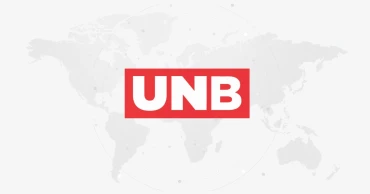
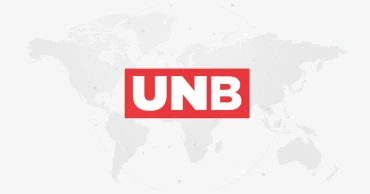
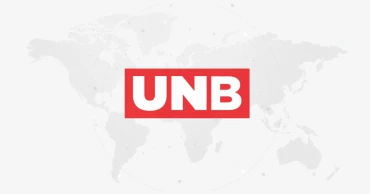
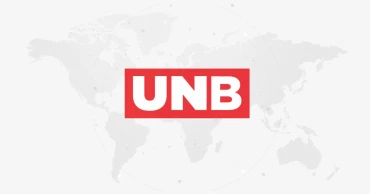



.jpg)
